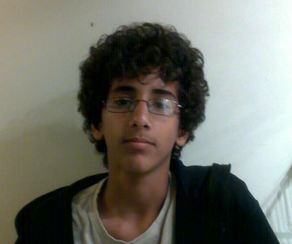Feigned Ignorance Means Never Having to Say You’re Sorry
After the US killed AQAP propagandist Samir Khan in a drone strike, the State Department made two calls to his family to express condolences. Doing so was probably the only way they could maintain the fiction his death was an accident, while still boasting about having killed Anwar al-Awlaki in the same strike. Nevertheless, the right wing has predictably gone apeshit over the apology.
Perhaps it’s because the US has seen no propaganda value in boasting about killing an American teenager. Perhaps they want to avoid similar bitching from the right.
But State appears to be adopting a different approach in the case of Abdulrahman al-Awlaki, the 16-year old son of Anwar al-Awlaki we killed last week. With Abdulrahman, State is feigning ignorance. (h/t JL)
We are aware of media reports that Abdulrahman al-Awlaki has been killed; however, we have not received confirmation of his death from the government of Yemen.
You see, the folks at State apparently don’t read the WaPo, much less FaceBook, and instead have to rely on getting this information from the Yemeni government we’ve surely instructed not to tell us this information. As a result, they have no way of knowing whether they’ve “accidentally” killed an American citizen too young to vote or even enlist without his dead father’s permission.
But hey! Their feigned ignorance means never having to say they’re sorry.



“State Department made two calls to his family to express condolences.”
I’m really curious what the script for such a call would be.
How do you break the ice? By saying,`Our bad’ ?
An analysis that suggests this sixteen year-old was a target, but the one we apologized for was not. The nuance would impress a 16th century Jesuit, but not a Franciscan.
@allan: No doubt you just leave an anonymous voicemail, and if questioned, say it was a wrong number.
@earlofhuntingdon: I’m going to recommend Joby Warrick’s book again.
He’s got a pretty detailed discussion of when they killed Beitullah Mehsud. This was back when they weren’t sure what al-Bawali was doing. But they clearly saw someone on the roof with Mehsud before they struck. But they thought, as the person was clearly ministering to Mehsud, he might be doctor–might even be al-Bawali. Though they were clearly aware that Mehsud had just gotten married and it might be his new wife.
They decided to shoot anyway.
FWIW, I don’t think Awlaki Jr. was the target–there were other legitimate targets there. But, particularly since the Awlaki household is no doubt tapped, they probably also had reason to know Adbulrahman was there.
@Tom Allen: Sickly spot on.
@emptywheel: Yep. Abdulrahman had left the family compound a couple of weeks before Anwar was killed and the WaPo article states the family had pleaded with him at the hideout to return. Undoubtedly on an NSA hard drive somewhere.
“We are aware of media reports that Abdulrahman al-Awlaki has been killed; however, we have not received confirmation of his death from the government of Yemen.”
Really?
So they are saying that they don’t know who their drones kill.
Uh huh.
@Mary: I wonder if they bothered to ask JSOC and the CIA…
Thank you for bringing this to light.
OT: Brad Blog has some updates on the American Spy that you covered so well.
OT: about that anthrax case again
http://www.mcclatchydc.com/2011/10/24/128012/secret-reports-suggest-ivins-and.html
A bad one: Stolen children in the USA.
This story has so much emphasis on the placement of these Native American children outside of the tribal group compared to discussion of the legal process by which the grabs are authorized and supported, that I wonder whether I have missed a first installment.
[Update: I see that there are two installments to come. Based on the summaries given, I’m still a bit curious. Nevertheless, what is presented today is very important.]
Believe it or not, Fox News has a very good story on this topic. They even have video of Abdulrahman from a year ago conclusively showing how young he was.
http://www.foxnews.com/politics/2011/10/25/killing-anwar-al-awlaki-unexpected-precedent-for-obama-administration/
It’s a shame their video can’t be embedded.
@Jim White: The woman there is the person who, for the brief period Fox covered it, covered the Libby trial.
@Mary:
Great point to pick up on. Should be used to outlaw drones.